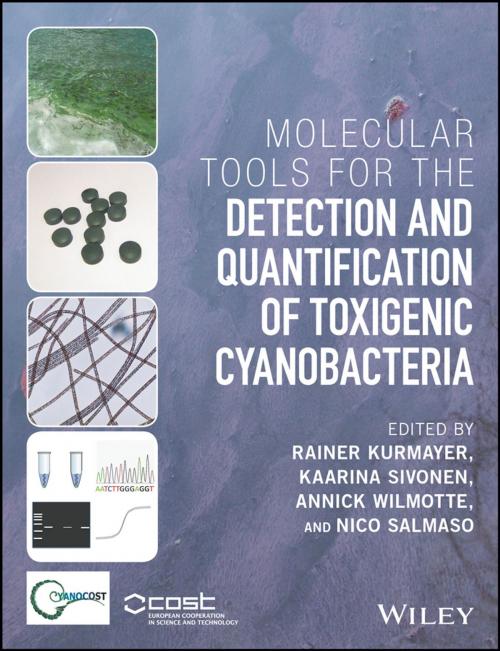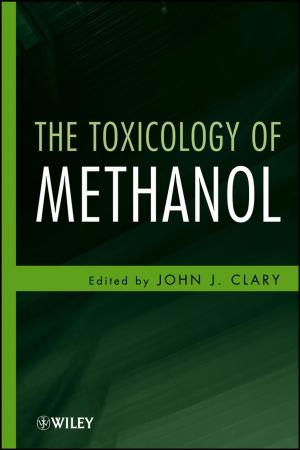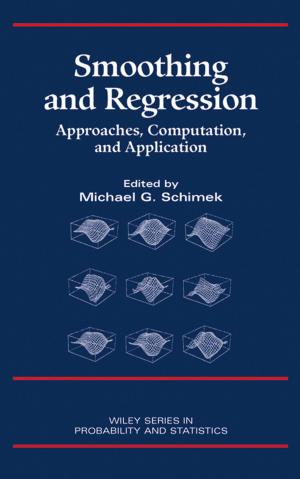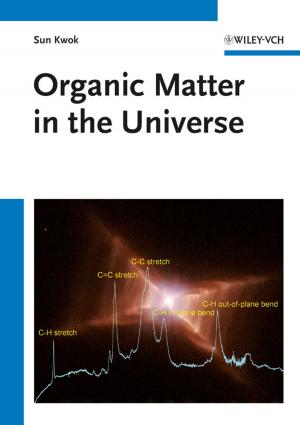Molecular Tools for the Detection and Quantification of Toxigenic Cyanobacteria
Nonfiction, Science & Nature, Science, Biological Sciences, Biochemistry| Author: | ISBN: | 9781119332145 | |
| Publisher: | Wiley | Publication: | June 29, 2017 |
| Imprint: | Wiley | Language: | English |
| Author: | |
| ISBN: | 9781119332145 |
| Publisher: | Wiley |
| Publication: | June 29, 2017 |
| Imprint: | Wiley |
| Language: | English |
A guide to state-of-the-art molecular tools for monitoring and managing the toxigenicity of cyanobacteria
Runaway eutrophication and climate change has made the monitoring and management of toxigenic organisms in the world’s bodies of water more urgent than ever. In order to influence public policy regarding the detection and quantification of those organisms, it is incumbent upon scientists to raise the awareness of policy makers concerning the increased occurrence of toxigenic cyanobacteria and the threats they pose. As molecular methods can handle many samples in short time and help identify toxigenic organisms, they are reliable, cost-effective tools available for tracking toxigenic cyanobacteria worldwide. This volume arms scientists with the tools they need to track toxigenicity in surface waters and food supplies and, hopefully, to develop new techniques for managing the spread of toxic cyanobacteria.
This handbook offers the first comprehensive treatment of molecular tools for monitoring toxigenic cyanobacteria. Growing out of the findings of the landmark European Cooperation in Science and Technology Cyanobacteria project (CYANOCOST), it provides detailed, practical coverage of the full array of available molecular tools and protocols, from water sampling, nucleic acid extraction, and downstream analysis—including PCR and qPCR based methods—to genotyping (DGGE), diagnostic microarrays, and community characterization using next-gen sequencing techniques.
- Offers an overview of the latest trends in the field, while providing a foundation for understanding and applying the tools and techniques described
- Provides detailed coverage of the full range of molecular tools currently available, with expert guidance on the analysis and interpretation of results
- Includes step-by-step guidance on standard operational procedures, including molecular tests used in environmental monitoring, with individual chapters devoted to each procedure
- Complements the published Handbook of Cyanobacterial Monitoring and Cyanotoxin Analysis from the CyanoCOST project
This handbook is an indispensable working resource for scientists, lab technicians, and water management professionals and an excellent text/reference for graduate students and supervisors who use molecular tools. It will also be of great value to environmental health and protection officials and policy makers.
A guide to state-of-the-art molecular tools for monitoring and managing the toxigenicity of cyanobacteria
Runaway eutrophication and climate change has made the monitoring and management of toxigenic organisms in the world’s bodies of water more urgent than ever. In order to influence public policy regarding the detection and quantification of those organisms, it is incumbent upon scientists to raise the awareness of policy makers concerning the increased occurrence of toxigenic cyanobacteria and the threats they pose. As molecular methods can handle many samples in short time and help identify toxigenic organisms, they are reliable, cost-effective tools available for tracking toxigenic cyanobacteria worldwide. This volume arms scientists with the tools they need to track toxigenicity in surface waters and food supplies and, hopefully, to develop new techniques for managing the spread of toxic cyanobacteria.
This handbook offers the first comprehensive treatment of molecular tools for monitoring toxigenic cyanobacteria. Growing out of the findings of the landmark European Cooperation in Science and Technology Cyanobacteria project (CYANOCOST), it provides detailed, practical coverage of the full array of available molecular tools and protocols, from water sampling, nucleic acid extraction, and downstream analysis—including PCR and qPCR based methods—to genotyping (DGGE), diagnostic microarrays, and community characterization using next-gen sequencing techniques.
- Offers an overview of the latest trends in the field, while providing a foundation for understanding and applying the tools and techniques described
- Provides detailed coverage of the full range of molecular tools currently available, with expert guidance on the analysis and interpretation of results
- Includes step-by-step guidance on standard operational procedures, including molecular tests used in environmental monitoring, with individual chapters devoted to each procedure
- Complements the published Handbook of Cyanobacterial Monitoring and Cyanotoxin Analysis from the CyanoCOST project
This handbook is an indispensable working resource for scientists, lab technicians, and water management professionals and an excellent text/reference for graduate students and supervisors who use molecular tools. It will also be of great value to environmental health and protection officials and policy makers.















